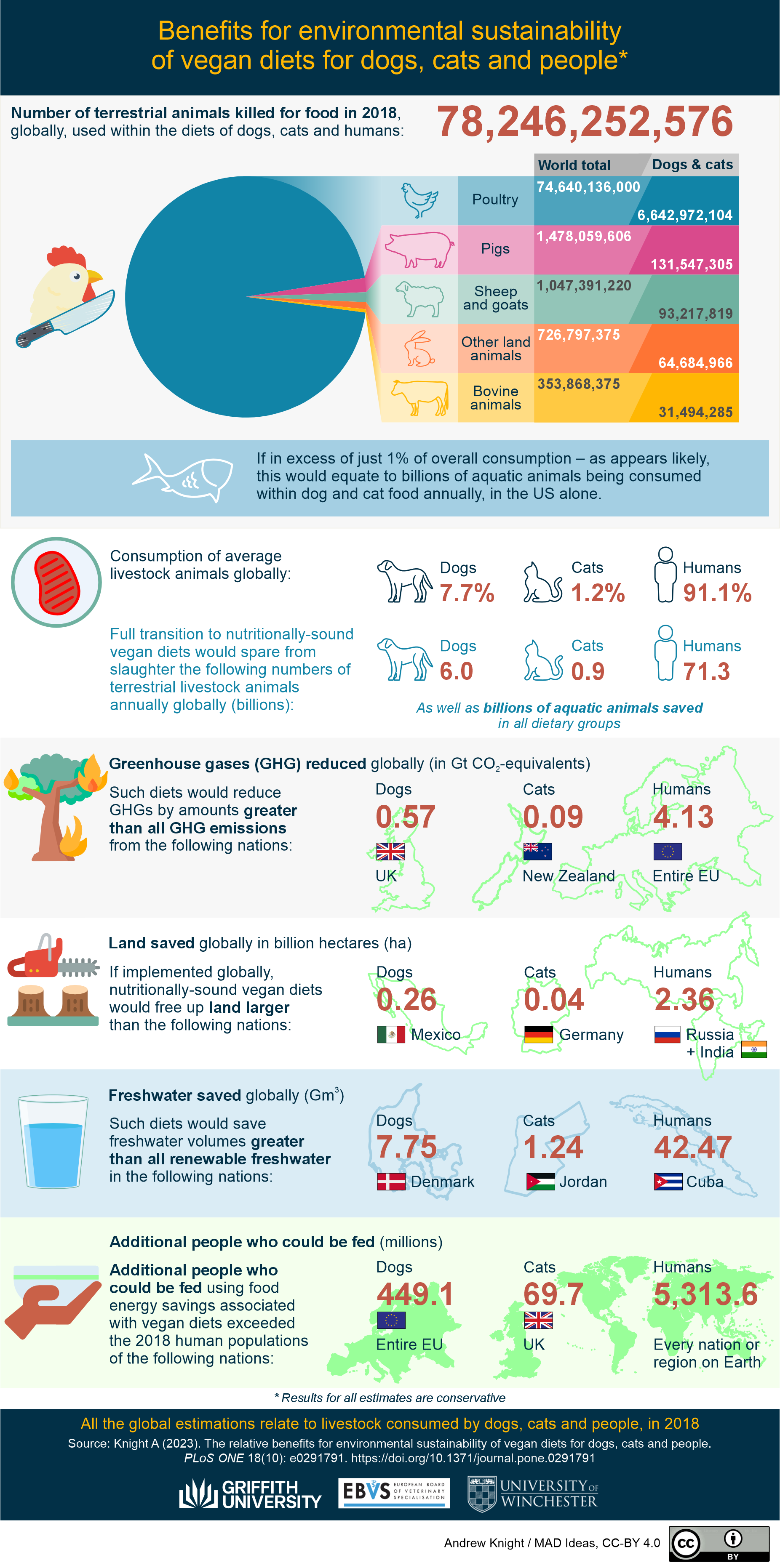
A University of Winchester academic says his latest study points to the massive environmental benefits to be gained by a vegan diet for people and their pets.
Andrew Knight, a Visiting Lecturer in Animal Welfare at the University, claims the findings of his new study, published today (4 October) in leading scientific journal PLOS ONE, are ‘game changing’.
Studies have shown plant-based diets lower greenhouse gas emissions (GHGs) and require less land and water. Food energy savings mean more people can be fed.
This has triggered many calls for dietary change but rarely have those calls extended to our dogs and cats.
After analysing pet food ingredients in detail, as well as food consumed by people, Professor Knight calculated that the world’s dogs and cats consume around 9 per cent of all land animals killed for food, or around 7 billion animals annually, as well as billions of fish and aquatic animals.
Professor Knight, a qualified vet, calculated that if all the world’s dogs went vegan, it would save more GHGs than all those emitted by the UK, land larger than Mexico, freshwater exceeding all renewable freshwater in Denmark, and would feed around 450 million additional people – more than the entire EU population.
If all the world’s cats went vegan, it would save more GHGs than all those emitted by New Zealand, land larger than Germany, freshwater exceeding all renewable freshwater in Jordan, and would feed around 70 million additional people – more than the entire UK population.
And if all the world’s people went vegan, it would save more GHGs than all those emitted by the entire EU, land larger than Russia and India combined, renewable freshwater exceeding all that of Cuba, and would feed around 5.3 billion additional people – almost two thirds of the world’s current population.

Until recently, such dietary change had not been seriously considered for dogs and cats – who are biologically omnivores and carnivores respectively.
However, in the last two years many new vegan pet foods have been developed by companies using plant-based ingredients supplemented with vitamins, amino acids and minerals, to ensure all necessary nutrients are included.
New studies have shown good health and behavioural outcomes for dogs and cats using such diets. There are now 9 such studies in dogs, and 3 in cats. The most recent very large-scale study showed positive health outcomes in vegan cats.
These have driven a rapid growth in this sector. By 2023 the vegan dog food market was valued at $14 billion and is expected to reach $26 billion by 2033.
Professor Andrew Knight said: “This study is game-changing. We’ve long known that plant-based diets are better for the planet but have not seriously considered the impacts of pet food. However, pet food has profound environmental impacts. Conversely, very large environmental benefits can be achieved by nutritionally-sound vegan pet food.
“Large-scale studies have also shown that health outcomes for both dogs and cats are as good or better. And studies of feeding behaviour have demonstrated that average dogs and cats enjoy vegan pet foods as much as those made from meat.”
He concluded: “Pet owners who care about the environment or their animals’ health should consider nutritionally-sound vegan pet food. However, to safeguard health, it is important that people feed only commercial diets labelled as nutritionally complete, produced by reputable companies with good standards.”
Read the study at: https://journals.plos.org/plosone/article?id=10.1371/journal.pone.029179
Back to media centre